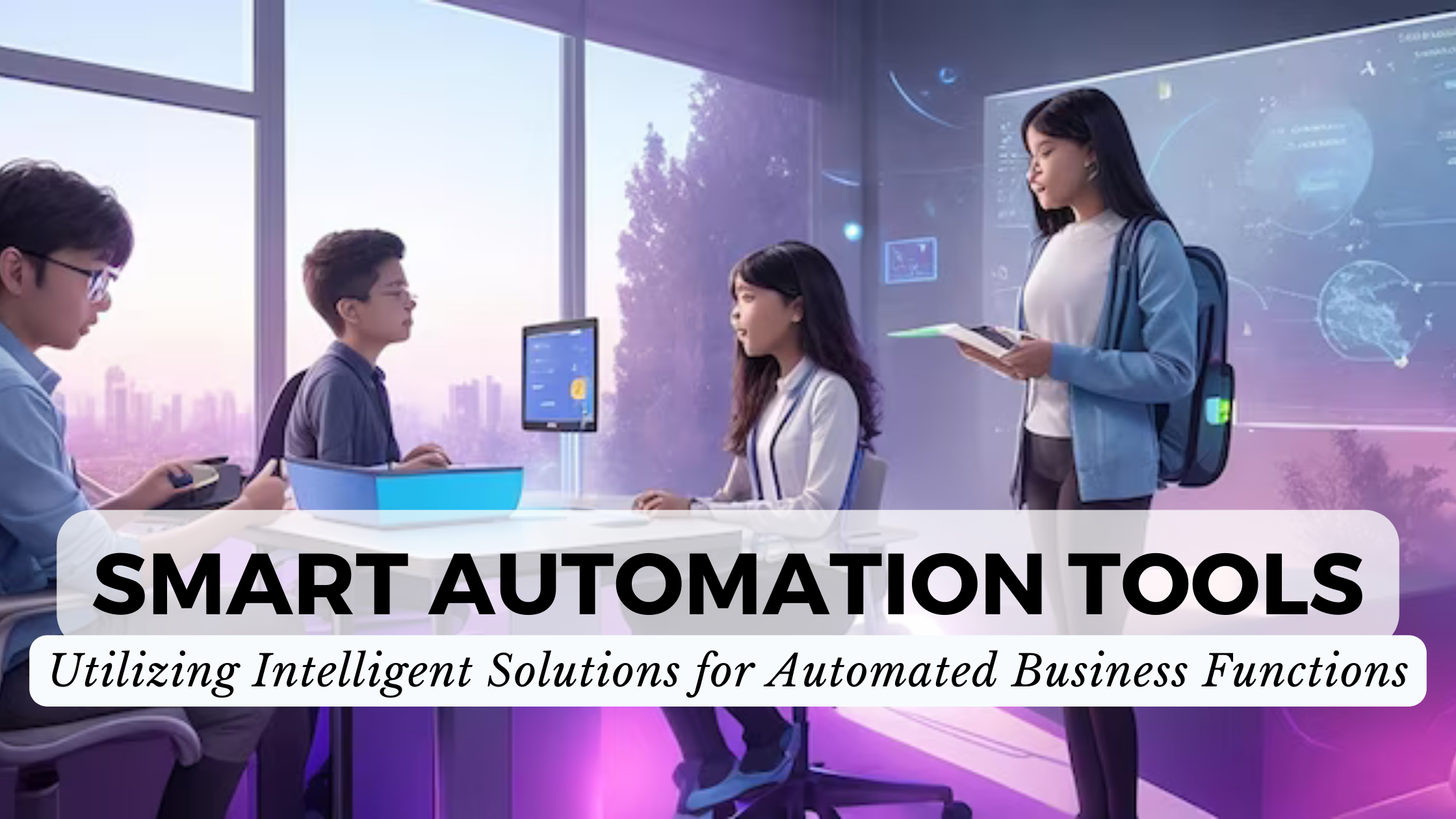Smart Automation Tools: Utilizing Intelligent Solutions for Automated Business Functions
-


Smart Automation Tools: Utilizing Intelligent Solutions for Automated Business Functions
In the ever-evolving landscape of business operations, the integration of smart automation tools has become paramount. These intelligent solutions not only streamline processes but also enhance efficiency and accuracy. In this in-depth exploration, we’ll delve into the world of smart automation tools, providing insights into their functionalities and introducing SaaS products that can revolutionize your business. Additionally, we’ll discuss how Subscribed.FYI can optimize your SaaS stack management, offering exclusive deals for a cost-effective and seamless experience.
Understanding Smart Automation Tools
Smart automation tools refer to advanced software solutions that leverage artificial intelligence (AI) and machine learning (ML) to perform tasks intelligently. These tools go beyond traditional automation, adapting to changing scenarios and continuously improving their performance.
- Robotic Process Automation (RPA):
- Definition: RPA involves using software robots or “bots” to automate repetitive, rule-based tasks traditionally carried out by humans.
- Applications: Invoice processing, data entry, order fulfillment, and customer service interactions.
- Benefits: Increased accuracy, faster processing times, and significant time savings.
- Artificial Intelligence (AI):
- Definition: AI simulates human intelligence in machines, enabling them to learn, reason, and make decisions.
- Applications: Chatbots for customer service, predictive analytics, image and speech recognition, and personalization of user experiences.
- Benefits: Enhanced decision-making, improved customer interactions, and the ability to derive insights from large datasets.
- Machine Learning (ML):
- Definition: ML is a subset of AI that focuses on developing algorithms that allow systems to learn and improve from experience.
- Applications: Predictive analytics, fraud detection, recommendation engines, and autonomous systems.
- Benefits: Adaptability, improved accuracy over time, and the ability to analyze complex patterns.
- Natural Language Processing (NLP):
- Definition: NLP enables machines to understand, interpret, and generate human-like language.
- Applications: Sentiment analysis, language translation, chatbots, and voice recognition systems.
- Benefits: Improved communication between humans and machines, enabling more intuitive interactions.
- Workflow Automation:
- Definition: Workflow automation involves the use of tools to automate and streamline the flow of tasks within an organization.
- Applications: Document approval processes, project management, and task assignment.
- Benefits: Increased productivity, reduced errors, and improved collaboration.
- Predictive Analytics:
- Definition: Predictive analytics uses statistical algorithms and machine learning techniques to identify the likelihood of future outcomes based on historical data.
- Applications: Demand forecasting, risk management, and personalized marketing campaigns.
- Benefits: Informed decision-making, proactive problem-solving, and optimization of resource allocation.
- Chatbots and Virtual Assistants:
- Definition: Chatbots and virtual assistants are AI-driven tools that interact with users through natural language.
- Applications: Customer support, information retrieval, and task automation.
- Benefits: 24/7 availability, efficient handling of routine queries, and improved user experiences.
- Intelligent Document Processing (IDP):
- Definition: IDP combines OCR (Optical Character Recognition) with AI to extract and process information from documents.
- Applications: Invoice processing, document categorization, and data extraction.
- Benefits: Faster document processing, reduced manual errors, and improved data accuracy.
- Edge Computing:
- Definition: Edge computing involves processing data closer to the source of generation rather than relying solely on centralized cloud servers.
- Applications: Real-time data processing, IoT (Internet of Things) applications, and reduced latency.
- Benefits: Improved speed and efficiency, enhanced security, and reduced bandwidth usage.
Relevant SaaS Products for Smart Automation
1. UiPath
UiPath is a leading robotic process automation (RPA) tool that combines the power of automation with AI and ML capabilities. It enables businesses to automate complex processes, making it an invaluable asset for tasks that require cognitive abilities.
2. Automation Anywhere
Automation Anywhere is a comprehensive automation platform that embraces AI-driven capabilities. It offers intelligent automation solutions for businesses of all sizes, from automating repetitive tasks to enhancing decision-making processes.
3. IBM Watson
IBM Watson is an AI-powered platform that provides a range of services, including natural language processing, machine learning, and data analytics. Businesses can leverage Watson to infuse intelligence into their applications and automate complex workflows.
4. Zapier
Zapier, while known for its general automation capabilities, incorporates smart elements by allowing users to create Zaps that learn from user behavior. It intelligently suggests automation workflows based on past actions, enhancing efficiency.
5. Salesforce Einstein
Salesforce Einstein is an AI-powered suite of tools embedded within the Salesforce platform. It brings intelligence to customer relationship management (CRM) processes, automating tasks, predicting outcomes, and personalizing customer interactions.
Conclusion
Smart automation tools have become indispensable for businesses aiming to stay ahead in the digital era. From RPA to AI-driven platforms, the SaaS products mentioned above cater to different automation needs, ensuring that businesses can operate smarter, faster, and more efficiently.
As you explore the realm of smart automation tools, Subscribed.FYI offers a centralized platform to manage your SaaS stack effectively. Unlock exclusive Subscribed.FYI Deals to save on your favorite tools and enhance your automation capabilities.
Effortlessly manage subscriptions, compare features, and make informed decisions with Subscribed.FYI. Sign up for free and take control of your SaaS expenses while optimizing your business processes.








